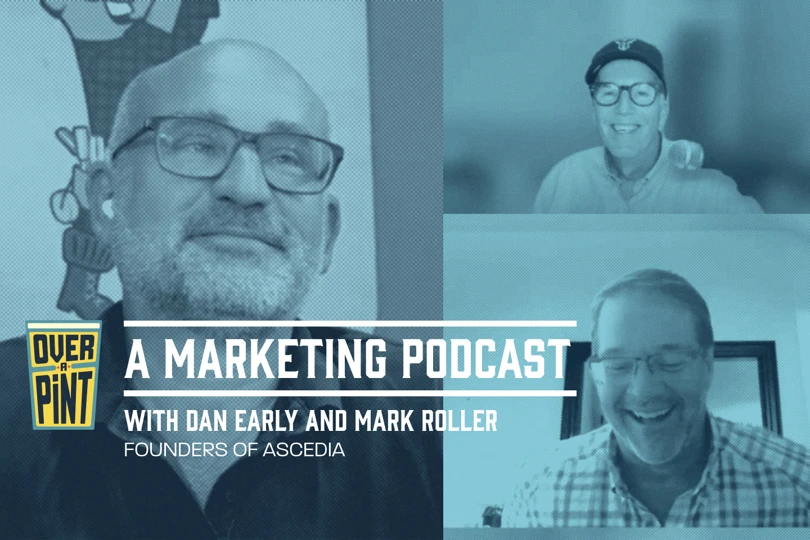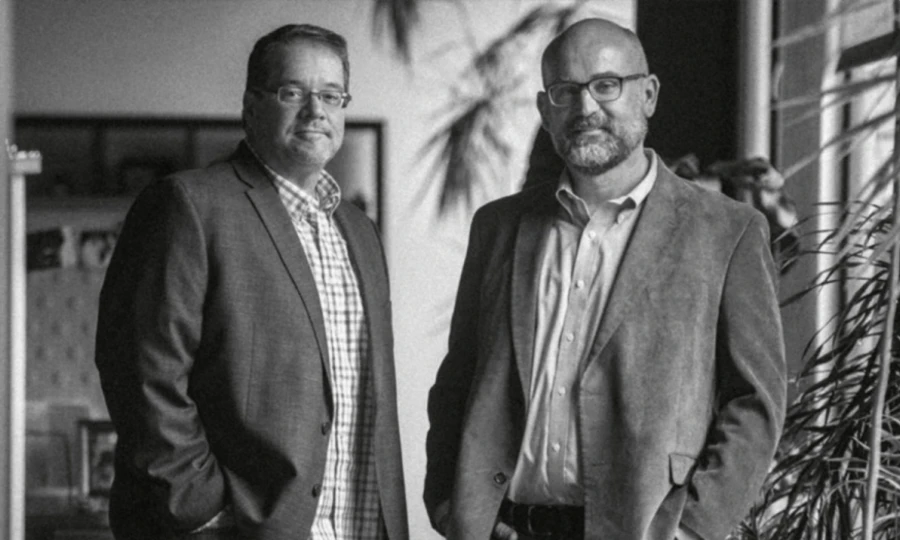Finding a marketing agency is easy. Finding the right agency involves some work. Many companies make the process too long and too complicated, but it doesn’t have to be that way.
Here are eight recommendations from Ascedia’s Patrick McGovern, Director of New Business Development, to guide you through the entire process of finding the right digital agency for you.
1. Figure out what you want
Before you start shopping around, figure out what specifically you want an agency to do. Sometimes it’s easy – you need a new website or you need more traffic to a new product page. These issues are easy to diagnose.
More often than not, though, it’s a more complicated problem like sales are down and you’re not sure why, or you want to go after a new group of customers but aren't sure how.
The first step in finding an agency begins with some soul-searching to define the problem. The better you are at defining the problem – the easier it is to select the right agency to solve the problem.
2. Determine who will be the agency’s point of contact
Agencies can’t operate in a vacuum. Let me take that back, they can, but you’ll end up flushing a lot of money down the drain. So, who is the best person to be the agency’s point of contact?
Here are a few Dos and Don’ts for you to consider:
-
Don’t: Put a junior team member as the point person – they won’t be able to push back enough and challenge the agency.
-
Do: Make sure the person has the time to work with an agency. Agencies require time and attention. If they don’t get it, things take longer and are usually more expensive.
-
Do: Give the person approval decision. If the person can’t approve spending, at least up to a certain level, they can’t manage the agency. Select wisely.
-
Don’t: Assign a committee. Nothing will get done and you’ll end up creating a lot of unneeded headaches.
3. Have a budget
Working with an agency is an investment – so you’ll need a budget. To determine how much, do some work upfront to get an idea of the going rate for services. If you’ve never worked with an agency before, or it’s been years since working with one, you’ll want to understand what things cost to avoid sticker shock.It makes no sense to spend the time and energy looking for something you can’t afford. Now, with those three steps leading up to your search out of the way, here are your next steps.
4. Start by asking your network for recommendations
Start by asking your network for their recommendations. When you do, make sure to find out the type of agency that was used and the work they performed. There are a lot of different agencies out there, some like Ascedia focus on the digital space while others focus on branding, public relations, and even social. Don’t assume because they do one type of work, they can do it all.
5. Research online
A quick Google search will turn up different options for you, go through their websites.-
Look at their case studies and experience
-
Look for verticals they have done work in. Some businesses only want to work with an agency that has worked in the same vertical (e.g. manufacturing). Others, it’s not that important.
-
Look at how long they have been in business. This will tell you two things: One, they have a reputation and two, it’s a good indication they will be in business down the road.
6. Kick some off the island
Based on your research, you might have a list of anywhere between three to a dozen different possibilities. Now is the time to cut back. There’s not an exact number you are looking for, but a good rule of thumb is to shoot for around five. That’s enough to compare, but not so many that it overwhelms and slows the process down.
How do you decide who stays and who goes? At this point it’s more of an art than science.
-
Look at their work in the sector
-
Does their website tell a compelling story
-
What brands have they worked with
No matter the criteria, some will stay and some have to go.
7. Prepare your RFP
The RFP, or Request For Proposal, is your opportunity to get deeper insights into how your agency partners thinks, their experience, how they work, and their overall philosophy. It’s a useful tool, however too many businesses try and cram too much into the RFP. They want to ask every question they can think of, but as a result, it becomes a massive document that is a pain in the a** for agencies to pull together and an even bigger pain for the marketing team to read through.
In my opinion, the best question to ask is how would they go about solving your problem. If you can’t articulate your problem, don’t continue; go back to step one – see above.
For your RFP, you’ll want to keep your list of questions between 12-20 questions.
Other things to include in the doc:
-
A brief overview of your company
-
A statement about the problem you are trying to solve
-
The contact person
-
The due date for questions from agencies
-
Due date for RFP responses
-
Approximate date for next steps
Also, think about how you want the information submitted. Do you want to leave things open? Do you want responses in a particular format? Remember someone is going to have to go through all these responses so keep it as simple as possible.
Finally, if you have a budget or a budget range for the work, include that in the RFP. At some point, you need to talk about dollars so work it into the conversation early. Many organizations don’t want to provide a budget. That’s the the wrong approach. If you have a budget – include it.
Once your list of questions is completed, send your RFP out.
8. The Chemistry Check
The chemistry check is the most important step in selecting your agency. By now you have gone through the website, you've gotten feedback on your questions, and you've asked around and have gotten the opinions of others. All of these are great, but it’s the chemistry check that will make or break the deal.
Once you’re belly to belly, that's when you will really be able to understand the agency. Things like how they interact with each other, how they interact with you, if they're excited about working with your team and many other details will start to become clear. Now is the time to ask yourself, is there a connection?
Now, there are different ways to go about having a chemistry meeting. The standard way is you invite a select number of agencies to come in and deliver a pitch. This is typically 60-90 minutes in length. The agency has a deck they walk through, and there’s time at the end for Q&A. Does it work? Sure, but there’s a better way.
Invite agencies to have a conversation – no PowerPoint or dog and pony – just asking questions back and forth.
Make sure you ask for the team that will be working daily on your project. Agencies often have a pitch team comprised of team members who are great in front of a client, but may not be touching your business. For this meeting, you’ll want the team members who are going to be elbows-deep in the work sitting at the table with you.
What to ask? Whatever you want! Some ideas of questions you could ask include:
-
Ask for more information about the agency
-
Dig deeper into key questions from the RFP
-
Ask about how an agency works with its clients
-
Ask what clients they like working with, what problems they like to tackle
There’s no magic set of questions. You are using this time to better understand the team that is going to be helping you out.
Ask whatever you want and listen closely for answers. You’ll also want to hear what questions the agency has for you. Remember, this is a conversation. If there are no questions or very few questions – that’s a red flag.
Most don’t use this approach but it’s the one I recommend because it will give you a better chance of understanding the agency and how they think and work.
Follow these eight steps and you’ll make the selection process easier and have a better chance of finding the agency that aligns with your goals and can help improve your business.




.jpg?ext=.jpg?width=760&height=540&rmode-crop&format=webp&quality=90)
